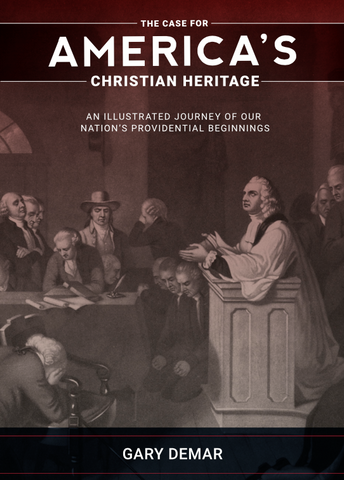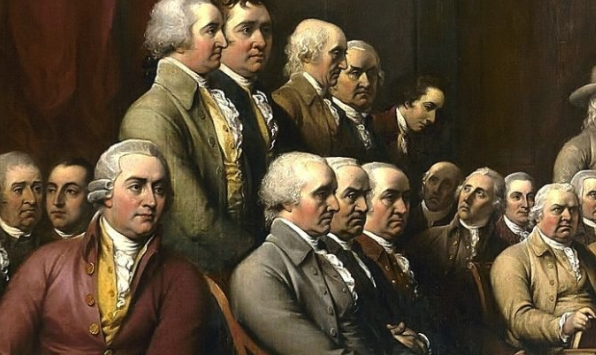Gary refutes the claim by revisionist historians that America was founded not on Christian principles but on Enlightenment ones.
There would not have been an America if Darwin’s evolutionary worldview had been around in 17th and 18th-century America. There would not have been, in the words of the Declaration of Independence, any “inalienable rights” since there would not have been a Creator to endow us with rights. The mind could not have been made free since the mind, given evolutionary assumptions, is nothing more than the random firing of electrical impulses among the synapses in the brain. There would not have been any protection of life or liberty since there is no way to account for inviolable moral laws that could have accomplished such a protection.
So when modern-day critics of America’s Christian heritage argue that America was founded by deists on Enlightenment principles and call into evidence Benjamin Franklin, George Washington, and Thomas Jefferson and for good measure James Madison, John Adams, and Thomas Paine, they fail to acknowledge that even deists could not escape America’s Christian heritage. Here’s one of many examples that could be referenced: “The founding fathers were predominately deists: Washington, Madison, Franklin, Jefferson.” But after making this claim, the author states, “Yet none was overly dismissive of traditional religion. Indeed, religious concepts… kept creeping into their pronouncements, from the Declaration of Independence to the American Constitution.” Historian C. Gregg Singer explains why:
A Christian world and life view furnished the basis for this early political thought which guided the American people for nearly two centuries and whose crowning [achievement] lay in the writing of the Constitution of 1787. This Christian theism had so permeated the colonial mind that it continued to guide even those who had come to regard the Gospel with indifference or even hostility. The currents of this orthodoxy were too strong to be easily set aside by those who in their own thinking had come to a different conception of religion and hence government too.
For example, the following words appear on Panel Three of the Jefferson Memorial: “God who gave us life gave us liberty.” Thomas Jefferson then asked, “Can the liberties of a nation be secure when we have removed a conviction that these liberties are the gift of God?” This is hardly a deist belief, and to a certain degree, it does not square with an Enlightenment philosophy.

The Case for America's Christian Heritage
Even some of our nation’s Founders who did not identify as Christians could not escape the impact the Bible had on our nation’s founding and the moral precepts that held the fledgling nation together. America’s Christian heritage is writ large in its state Constitutions, charters, laws, symbols, and repeated stated reliance on the overruling providence of God.
Buy NowIt is often claimed by revisionist historians that America was founded not on Christian principles but on Enlightenment ones. This is a huge overstatement. It is more correct to say that America was founded on both, however even the Enlightenment-influenced Founders were products of their time, which means they were also influenced by Christian principles and wrote them into our founding documents and governance.

